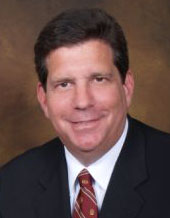As discussed in my prior blog item, the staff in the Securities and Exchange Commission (SEC) did not make a recommendation to the commissioners of the SEC on whether U.S. registrants should be required or permitted to use International Financial Reporting Standards (IFRS). I termed it a “punt.” On October 22, 2012, the IFRS Foundation staff published an 84-page analysis of this SEC staff report. In the press release announcing issuance of the IFRS Foundation staff report, Trustee Chairman Michel Prada observed that there are “no insurmountable obstacles for adoption of IFRS by the United States.”
Audit, Compliance and Risk Blog
Tags: Business & Legal, SEC, Accounting & Tax, JOBS Act, GAAP, IFRS, Decision on IFRS
It appears that Mr. Anil Vazirani, an independent insurance agent, has “griped” against the sixth largest insurance conglomerate, Aviva USA, and pretty much gotten away with it. See Aviva USA Corp. v. Vazirani, D. Ariz., No. 2:11-cv-00369-JAT, 10/2/12. I am somewhat happy for him. Mr. Vazirani used to sell Aviva life insurance products and, at some point, the relationship was terminated. So, Mr. Vazirani then bought up about 14 domain names incorporating the trademark AVIVA, for example, AVIVAPLCSUCKS.COM and AVIVAUNCOVERED. On these sites, Mr. Vazirani proceeded to “gripe”.
Tags: Business & Legal, Employer Best Practices, Employee Rights, Internet
Managing Employee Use of Social Media Without Breaking Employment Law
Posted by Jon Elliott on Wed, Oct 24, 2012
Is your organization one of the many with policies restricting employees’ use of social and other electronic media? If so, you need to consider last month’s National Labor Relations Board (NLRB) decision, finding that Costco’s policy violates the National Labor Relations Act (NLRA). This decision is another recent example of a regulator’s interpretation of ambiguous employer policies in ways that protect employee rights by using the employer’s ambiguity against it – and reinforce that employment law best practices require clarity and narrow drafting.
Tags: Employer Best Practices, Employee Rights, Internet, NLRB
U.S. Supreme Court to Decide Workplace Harassment Question
Posted by Mark Guralnick on Mon, Oct 22, 2012
When is an employer responsible for workplace harassment perpetrated by one of its employees? Currently, the answer depends on where the employer is based, but with the Petition in Vance v. Ball State University, et al., the United States Supreme Court plans to settle that question on a nationwide basis.
Tags: Business & Legal, Employer Best Practices, Employee Rights, Workplace violence
Psychological Fitness for Duty – When and How to Evaluate Employees
Posted by Jon Elliott on Thu, Oct 18, 2012
When an employer becomes concerned that an employee may be incapable of performing his or her job, one response is formal evaluation of that employee’s “fitness for duty (FFD).” Although most cover physical abilities, referrals are also made for psychological FFD evaluations, to determine whether an employee has a psychological impairment that makes him or her unable to perform effectively and safely. These may be triggered when an employee is exhibiting signs of psychological or emotional stress, including those that manifest in hostile or threatening behaviors, or in other behaviors that lead co-workers, or the employer, to be concerned for their safety.
Tags: background checks, Business & Legal, Employer Best Practices, Health & Safety, Employee Rights, Disability benefits
GHG Auditing and Environmental Compliance — Are You Prepared?
Posted by Jon Elliott on Tue, Oct 16, 2012
Environmental compliance has been an important issue for large, multi-national companies for many years, and in recent years it has taken on added importance for their suppliers. Case in point: Walmart, Procter & Gamble, IBM – many Fortune 500 companies – are requiring that their vendors audit and quantify the greenhouse gas (GHG) emissions in their supply chains. Indeed, many of these high-profile organizations have undertaken ambitious plans for reducing their carbon footprint. (A big driver of this activity is stronger environmental regulation and pressure from environmental organizations, customers, investors and the like.) For example, in early 2010 Walmart announced a goal to eliminate 20 million metric tons of GHG emissions from its global supply chain by the end of 2015. Procter & Gamble has the stated objective of generating 100% of its energy from renewable resources – with a target of generating 25% of that by 2020.
Tags: Corporate Governance, Audit Standards, Health & Safety, Environmental risks, Environmental
Employment Law, Confidentiality and Internal Investigations
Posted by Jon Elliott on Fri, Oct 12, 2012
Does your organization ever conduct internal investigations to evaluate complaints about working conditions, claims of harassment or other inappropriate behavior, or concerns about individual, or group, law-breaking? If so, investigators probably try to keep the investigation confidential, in order to avoid internal embarrassment while preserving the status quo until the investigation reaches its conclusion.
Tags: Business & Legal, Employer Best Practices, Employee Rights, Workplace violence
FTC's New Green Guides for Environmental Marketing Claims
Posted by Jon Elliott on Wed, Oct 10, 2012
The Federal Trade Commission (FTC) administers a broad range of consumer protection statutes, primarily by issuing “guidelines” for organizations to follow when they design products, packages and advertising materials. Generally these guidelines are not directly enforceable, but FTC uses them as the basis for deciding whether a particular activity is lawful. FTC provides organizations that conform to the guidelines with a “safe harbor” against prosecution for violation of one of its statutes, and focuses enforcement on businesses that fail to conform.
Tags: Business & Legal, Environmental
The Public Company Accounting Oversight Board (PCAOB) was created by the U.S. Congress as a result of passage of the Sarbanes-Oxley Act of 2002 (SOX). Some believe that the PCAOB has been sleeping, because its recent activity has not been very visible. But as discussed below, the board is addressing many complex and sometimes highly controversial changes to the auditing profession.
Tags: Corporate Governance, SEC, Accounting & Tax
Understanding Insurance Law (Rule Number One: Words Rule)
Posted by Barry Zalma on Fri, Sep 28, 2012
A picture may be worth a thousand words. But words – or lack thereof – can be worth millions. Never more so than when courts are deciding the level of coverage and the amount of payout policyholders are entitled to from insurance companies. So, when it comes to understanding insurance law you need to make sure you understand rule number one: words rule.
Tags: Corporate Governance, Business & Legal, Environmental risks, Environmental, Insurance, Insurance Claims






